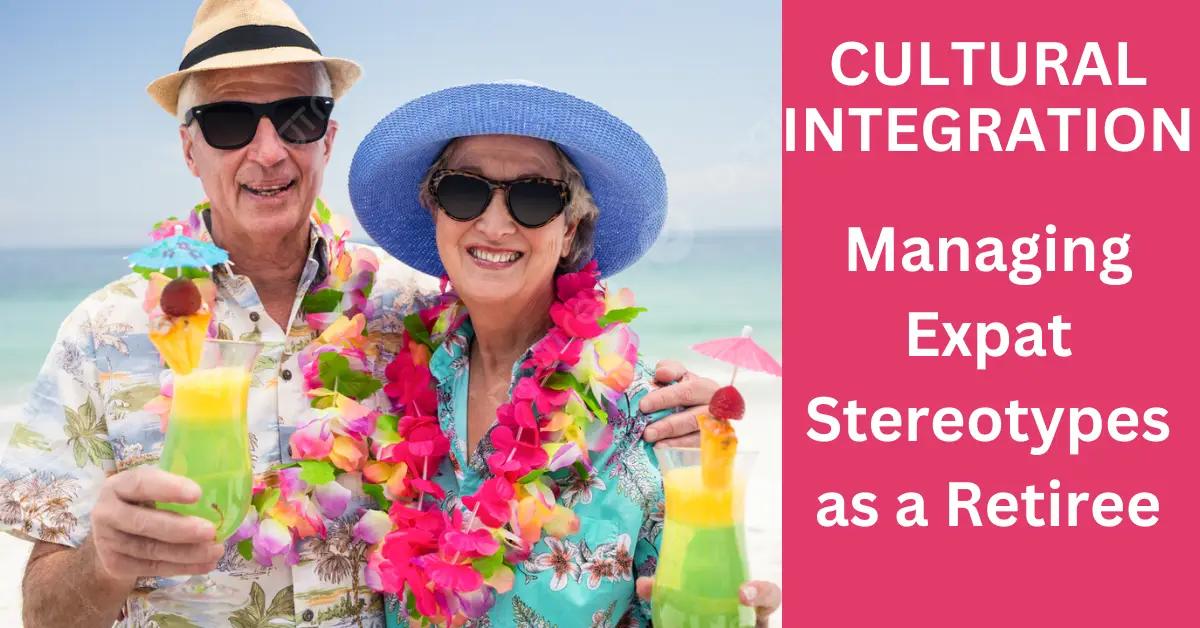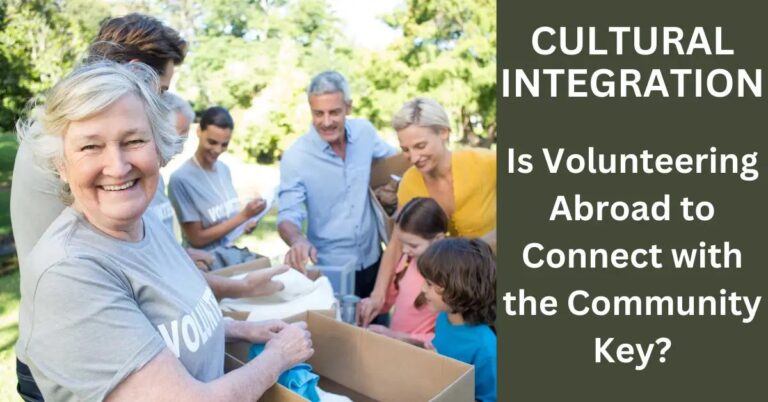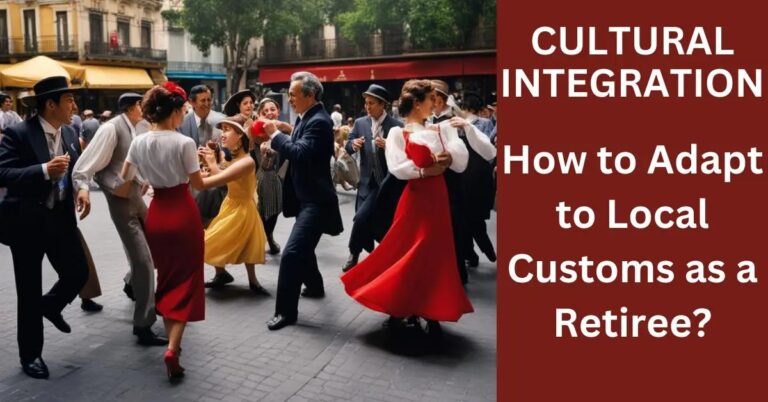TL;DR:
- Expat retirees face stereotypes like living a life of constant leisure; many seek purpose through careers, volunteering, or hobbies.
- Stereotypes complicate social integration; strategies like volunteering can help reshape perceptions.
- Building a supportive expat community and sharing personal success stories dispels myths and highlights diverse expat experiences.
- Cultural adaptation plays a key role; understanding cultural norms and effective communication prevent misunderstandings and foster respect.
- Participating in local festivities and cultural sensitivity are crucial for integration and forming mutual respect.
- Practical tips include joining local groups, embracing local customs, balancing lifestyles, and making diverse friendships.
- Thriving as an expat involves openness, curiosity, and adaptability, enhancing multicultural living and positive experiences.
Ever felt like you’re living out someone else’s idea of an expat retiree? The stereotypes are many, yet they don’t define you. Managing these misconceptions is key to a fulfilling life abroad. We’ll explore how expat biases can impact your social life and share strategies to reshape these stereotypes. Let’s delve into real stories and community support. You’re more than any stereotype, so let’s tackle this together.
What are the common stereotypes about expat retirees and how can they be managed?
Many expat retirees face labels that are not fully true. One common stereotype is that retirees abroad live a life of constant leisure. People might think we move to countries only for sun and fun. The SQuAD method explains that while some retirees enjoy leisure, many seek purpose. Some expats start new careers, volunteer, or engage in hobbies.
These stereotypes can challenge our social life and integration. Locals may see us as outsiders who don’t wish to blend in. This can make it hard to form true friendships. It might also create a barrier between us and local communities. To overcome these, we need the right strategies.
First, we can reshape views by getting active in local groups. Volunteering or joining clubs can show we care about the community. When we share our skills, we break the mold others might place on us. It’s not just about changing views; it’s about creating new ones.
Next, community support is key. The expat community can offer help and understanding. We can talk with others who live abroad to share stories and tips. By meeting those who have faced similar challenges, we learn and grow together.
Personal stories also help to challenge these labels. If we share our successes, they showcase the variety of expat lives. Talking about how we achieved goals abroad adds to the real picture of expat life.
Take part in groups like the InterNations Community to get started. That way, you can build a supportive network that helps manage stereotypes. Through connection and activity, we can all reshape how expat retirees are seen.
How does cultural adaptation play a role in managing stereotypes for expat retirees?
Managing stereotypes as an expat retiree can be a complex journey. Adapting to a new culture involves understanding the cultural differences in your host country and recognizing common stereotypes. To manage these smoothly, first grasp the ways local people see expats. Education on cultural norms helps break barriers and dispels misconceptions.
Learning about cultural norms also enhances your ability to navigate social dynamics. Cultural competencies, like the ability to read social cues, promote respect and understanding. These skills prevent misunderstandings and create a bond between you and the locals.
Communication is another essential factor. How can you enhance cross-cultural relationships? Use strategies like active listening and open questions. Engage in conversations about customs and local life. This demonstrates interest and builds rapport. Effective communication paves the way for respectful interactions and strengthens relations.
Cultural sensitivity becomes vital here. It involves being aware of others’ cultural backgrounds and respecting their differences. Acting with sensitivity and inclusion fosters a positive image. It shows that you care and are not imposing your own beliefs.
Another effective approach is participating in cultural festivities. Why join in these celebrations? They offer a chance to blend into the community. Shared experiences build mutual respect and understanding. By joining local events, you show appreciation for local customs.
Most importantly, cultural adaptation for retirees is about carving your place with patience and humility. It requires embracing change and learning continuously. This journey not only enriches your life but also smooths the path for a peaceful retirement abroad. Sharing stories with fellow retirees can also provide insights and encouragement. Together, these steps help manage stereotypes, allowing you to enjoy your retirement fully.
What are the practical tips for expat retirees to defy stereotypes and embrace multicultural living?
As a retiree living abroad, building a supportive network is essential. Join local groups and expatriate communities to find common ground. This way, you make new friends and gain support. Engage with others who have diverse backgrounds. Attend events and participate actively.
When you embrace openness and curiosity, understanding other cultures becomes rewarding. Immerse yourself in the local ways of life. Explore festivals, foods, and daily customs. See the world through their eyes. Respect for their traditions will deepen your connection with the community.
Discovering and respecting unique cultural traditions enriches your life. Learn local greetings and gestures, showing you care about their ways. By doing this, you break down walls and show you want to integrate.
Balancing your expatriate lifestyle choices with local practices is vital. While some habits from home bring comfort, mixing them with local ways fosters acceptance. For example, try their clothing style or attend a local market with them. This balance creates a harmonious existence.
Building meaningful connections across cultures enhances identity and integration. Seek friendships with diverse individuals. Learn their stories and share yours. This exchange broadens your perspective and enriches your life. You become more well-rounded and fulfilled.
Remember, thriving as an expat retiree is more than navigating through tips. It is about finding joy in the diversity around you. Living abroad gives you daily chances to learn and adapt. Your life becomes a fascinating journey into multicultural living. If you want more on how to embrace this journey check this out.
Thriving in an expatriate lifestyle requires being open, curious, and adaptable. By engaging with locals and expatriates, immersing in traditions, and balancing lifestyles, you defy stereotypes. These steps lead to positive expat experiences, enriching your life and the lives of those around you.
Conclusion
Understanding and tackling expat stereotypes starts with awareness and openness. Recognizing these biases helps you connect better and integrate smoothly. Use community support to share your story and change minds. Dive into local cultures, celebrate differences, and build bridges. With these steps, life abroad becomes richer and more fulfilling. Challenge misconceptions by embracing diversity and fostering inclusivity. You’re not just adapting; you’re thriving. Remember, every effort to understand and connect shapes a better and more open world for you and others.












